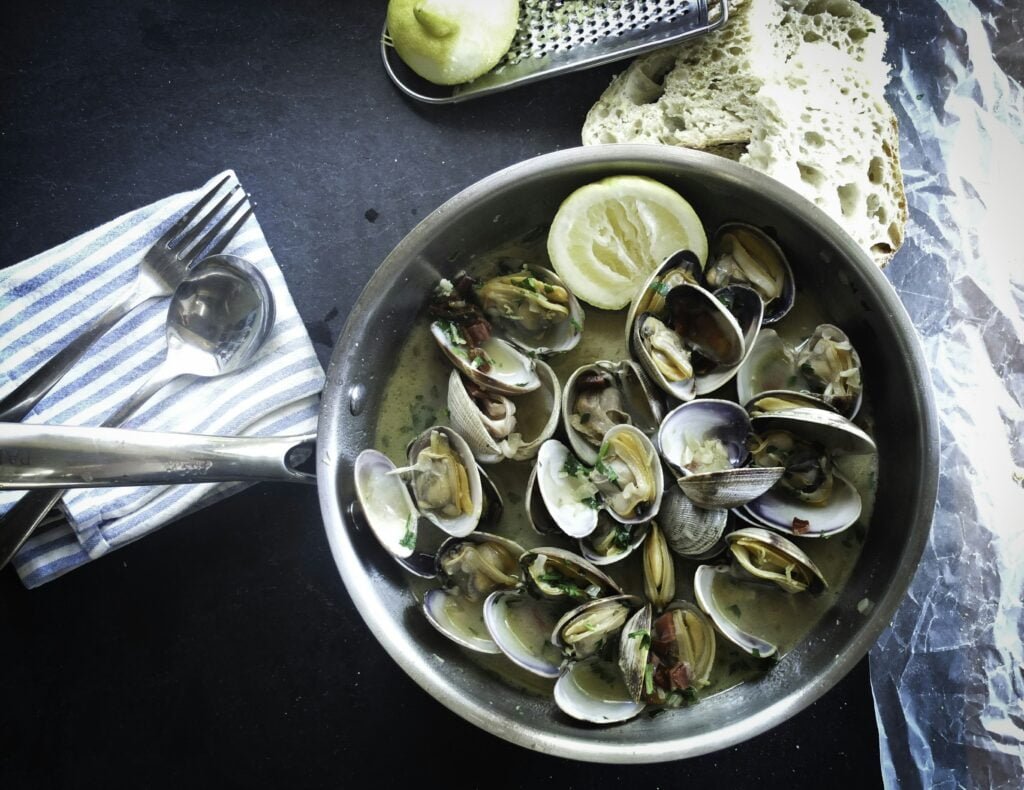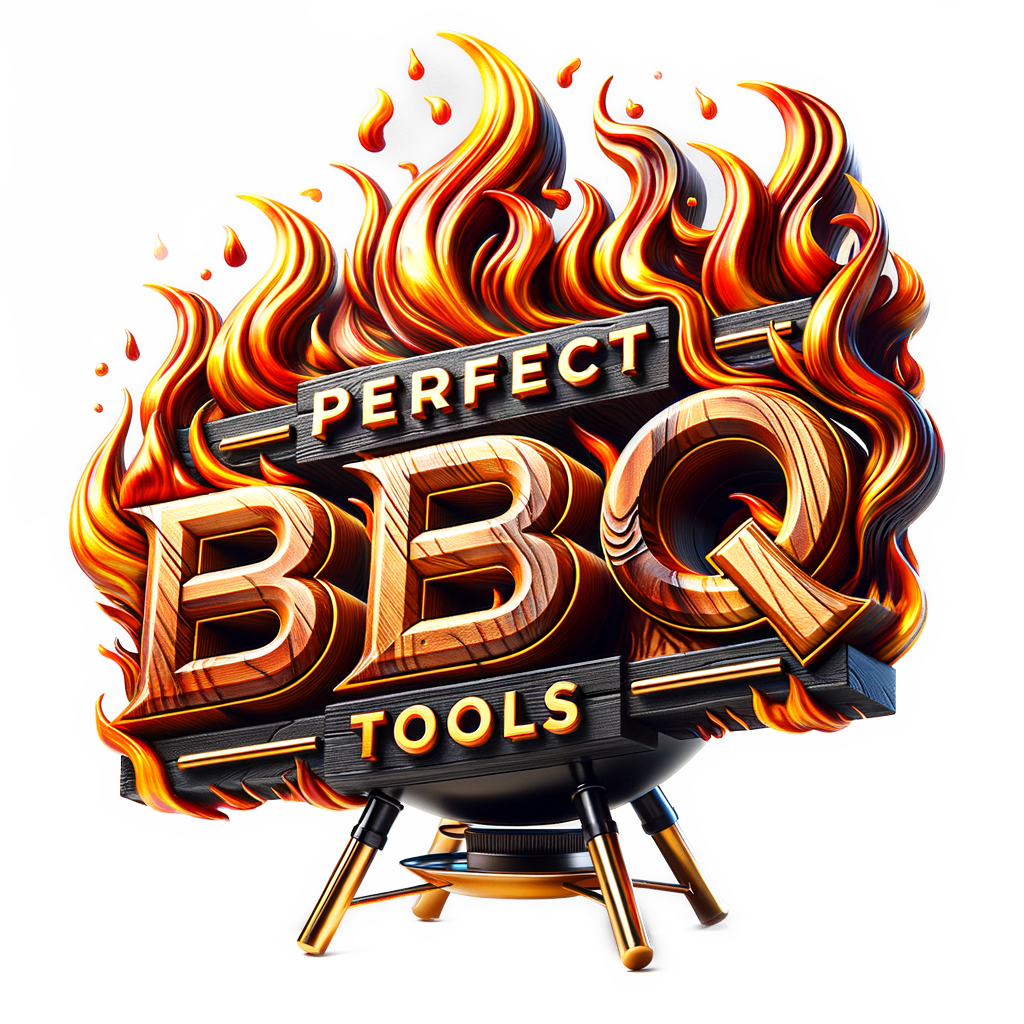If you enjoy hosting backyard barbeques and savoring the delicious flavors of grilled food, then you’ve probably wondered: how often should I clean my barbeque grill? Well, the answer lies in finding the perfect balance between cleanliness and maintenance. Regularly cleaning your grill not only enhances the taste of your food but also prolongs the lifespan of your grill. In this article, we will uncover the ideal frequency to keep your barbeque grill looking pristine and ensuring your grilling experience remains top-notch. So, let’s jump right in and discover the secret to a sparkling grill that will have your friends and family lining up for seconds!

Understanding the Importance of Cleanliness
Explaining the Health Risks of a Dirty Grill
Keeping your grill clean is not just about maintaining a tidy cooking area – it is also crucial for your health. A dirty grill can harbor harmful bacteria, such as E. coli and Salmonella, which can contaminate your food and lead to foodborne illnesses. The heat from the grill is not always enough to kill these bacteria, making regular cleaning a vital step in ensuring the safety of your meals.
The Impact on Taste and Quality of Food
Have you ever experienced a strange, off-putting taste while enjoying a barbecue meal? A dirty grill could be the culprit. A buildup of grease, charred food, and residue on the grates can impart unpleasant flavors to your food. Additionally, these residues can interfere with heat distribution, preventing your grill from reaching optimal cooking temperatures and leading to unevenly cooked dishes. By maintaining a clean grill, you can preserve the delicious flavors and quality of your food.
Improving the Lifespan of Your Grill
Investing in a high-quality grill can be quite significant, so it’s important to take proper care of it to ensure its longevity. Regular cleaning not only prevents the accumulation of debris and rust, but it also helps you detect any potential issues early on. By identifying and addressing problems promptly, you can prolong the life of your grill, saving you from the hassle and expenses of premature replacements.
Frequency of Grill Cleaning
Factors Determining the Cleaning Frequency
The ideal frequency for cleaning your grill depends on several factors, including how often you use it, the types of food you cook, and the materials your grill is made of. If you frequently grill fatty meats or marinade-heavy dishes, you’ll likely need to clean your grill more often. Similarly, if you use your grill more regularly, it will require more frequent cleaning to maintain its performance and hygiene.
Recommended Cleaning Frequency by Grill Experts
Grill experts generally recommend cleaning your grill after every use. This ensures that any residue or grease buildup is promptly eliminated, preventing the development of stubborn stains and potential health risks. However, at the very least, a thorough cleaning should be performed at the beginning and end of each grilling season. By adopting this regular cleaning routine, you can safeguard both the taste of your meals and the lifespan of your grill.
Assessing Your Grill’s Condition
Assessing for Buildup of Grease and Charred Food
Before embarking on your cleaning routine, it is essential to assess the condition of your grill. Look for signs of grease buildup, charred food remnants, and other debris that may have collected over time. Pay close attention to the grates and the interior of the cooking chamber, as these areas usually accumulate the most residue. Identifying the extent of the buildup will help you determine the appropriate cleaning methods needed.
Checking for Rust or Corrosion
Rust and corrosion can severely affect the performance and lifespan of your grill. Regular inspections can help you identify these issues early on and take appropriate measures to prevent further damage. Examine all the metal parts of your grill, such as the grates, burners, and exterior surfaces, for any signs of rust or corrosion. If you notice any, consider addressing the problem promptly to avoid compromising the integrity of your grill.
Evaluating Overall Working Condition
While assessing your grill’s condition, it’s important to evaluate its overall working condition. Check for any loose or damaged parts, such as knobs, handles, or ignition systems, which can impact safety and ease of use. Additionally, ensure that all the components are functioning correctly, including the fuel supply, flame distribution, and temperature control. Taking note of any issues will help you address them and maintain a fully functional grill.
Pre-Cooking and Post-Cooking Cleaning
The Importance of Pre-Cooking Cleaning
Preventing the buildup of grease and food residues before you start cooking is essential for both safety and quality reasons. By pre-cleaning your grill, you remove any debris that may have accumulated since the last use, reducing the risk of flare-ups caused by grease igniting during cooking. This step also ensures a cleaner cooking surface, allowing for better heat distribution and minimizing the risk of off-flavors in your food.
Steps for Post-Cooking Cleaning
After every grilling session, it is crucial to give your grill a thorough cleaning to maintain its performance and hygiene. Start by removing the food residues and excess grease from the grates using a grill brush or scraper. This will help prevent the buildup of charred debris, making future cleanings easier. Next, clean the interior of the grill by brushing off any loose debris and wiping it down with a damp cloth. Finally, empty the drip tray and dispose of any collected grease or ash.
Balancing Cleaning Efficiency
While it’s important to clean your grill thoroughly, finding a balance in cleaning efficiency is also crucial. Avoid using excessive force when scraping the grates to prevent damaging them. Similarly, be cautious when using cleaning solutions to avoid leaving behind any residue that might affect the taste of your food. Opt for cleaning methods that effectively remove debris without compromising the quality and safety of your grill.

Deep Cleaning Your Grill
When to Deep Clean Your Grill
Deep cleaning your grill is an intensive process that aims to remove stubborn buildup and restore your grill to its optimum condition. This type of cleaning is typically done once or twice a year, depending on the frequency of use and the severity of the buildup. Signs that indicate the need for deep cleaning include significant grease accumulation, heavy rust or corrosion, and stubborn stains that cannot be removed through regular cleaning methods.
Steps to Properly Deep Clean a Grill
Deep cleaning involves disassembling various components of the grill for thorough cleaning. Start by removing the grates, burners, and other detachable parts. Soak these parts in warm, soapy water to loosen any grease or debris. While they’re soaking, clean the interior of the grill using a grill brush and biodegradable degreaser. Scrub off any tough stains or rust spots with a wire brush or steel wool. Once the components have soaked, rinse them thoroughly and reassemble your grill.
Tips for Thoroughly Cleaning Grill Grates
Cleaning the grates is a crucial aspect of maintaining a clean grill, as they come into direct contact with the food. For optimal results, clean the grates while they are still warm immediately after cooking. Start by scrubbing the grates with a grill brush to remove any debris. Then, soak them in warm, soapy water for a few minutes to loosen any remaining residue. Scrub the grates again with a brush, rinse thoroughly, and dry them before placing them back inside your grill.
Maintaining Your Grill Between Cleanings
Effective Practices for Grill Maintenance
In addition to regular cleaning, adopting effective maintenance practices can help extend the life and performance of your grill. After each use, ensure that all burners are turned off and the gas supply is disconnected, if applicable. Keep your grill covered when not in use, protecting it from the elements and preventing the accumulation of dirt and debris. Additionally, periodically inspect the hoses, regulators, and other parts for any signs of wear or damage and replace them as necessary.
Proper Grill Covering and Storage
Protecting your grill from the elements is essential for its longevity. When not in use, cover your grill with a high-quality grill cover specifically designed to fit your model. This will shield it from rain, snow, and other environmental factors that can lead to rust and corrosion. Before covering, ensure that your grill is completely cooled. Additionally, choose a storage location that provides adequate ventilation and protects the grill from extreme temperatures.
Using Grill Cleaning Tools
Investing in the right cleaning tools can greatly simplify the grill cleaning process. A grill brush with sturdy bristles and a scraper is essential for removing debris from the grates and interior surfaces. Look for brushes with long handles to keep your hands safely away from the heat. Additionally, consider using grill-cleaning sprays or natural cleaners specifically formulated for grills. These can help break down grease and make cleaning more manageable without leaving behind any toxic residue.

Safety Measures During Grill Cleaning
Safe Use of Cleaning Agents
When using cleaning agents on your grill, it is crucial to follow safety guidelines to protect both yourself and the environment. Choose biodegradable degreasers or natural cleaning agents whenever possible, as they are safer for use on surfaces that come into contact with food. Always read and follow the instructions on the cleaning product’s label, including any precautions or warnings. Wear gloves and protective eyewear when necessary, and ensure that your work area is well-ventilated.
Precautions with Grill Brushes
Grill brushes are effective tools for removing debris, but they can pose safety hazards if not used properly. Always inspect your brush before every use, looking for loose bristles or signs of wear. If any bristles are loose or shedding, replace the brush immediately to avoid ingestion during cooking. When brushing the grates, apply gentle pressure and use horizontal strokes. This technique reduces the risk of bristles getting stuck on the grates and potentially transferring to your food.
Disposal of Grill Waste
Proper disposal of grill waste is an important aspect of grill cleaning, as it ensures the containment of debris and potential hazards. When emptying the drip tray, discard the accumulated grease and ash in a metal container with a tight-fitting lid. This prevents animals from accessing the waste and reduces the risk of fire. Check your local regulations for guidelines on how to dispose of grill waste, as some areas may have specific guidelines for the disposal of grease and ash.
Professional Grill Cleaning Services
When to Consider Hiring Professionals
While regular cleaning and maintenance can effectively keep your grill in good condition, there may be instances when professional grill cleaning services are necessary. If your grill has significant rust, corrosion, or damage that you are unable to tackle on your own, or if you simply lack the time or expertise for deep cleaning, it might be worth considering professional assistance. Professionals have the necessary tools and experience to handle even the toughest cleaning challenges.
Choosing Reliable Grill Cleaning Services
When selecting a professional grill cleaning service, it is essential to choose a reliable and reputable company. Seek recommendations from friends or read reviews from previous customers to ensure their credibility and expertise. Verify that the service providers are properly licensed and insured, as this indicates their professionalism and commitment to quality work. Contact multiple companies for quotes and compare their services and pricing to make an informed decision.
Costs and Benefits of Professional Cleaning
The cost of professional grill cleaning services can vary depending on several factors, such as the size and condition of your grill, the level of cleaning required, and your location. While it may involve an upfront investment, the benefits of professional cleaning are numerous. Professional cleaners can restore your grill to its optimal condition, saving you time and effort. They can also identify any potential issues that may require repairs, ultimately prolonging the lifespan of your grill and ensuring a safe grilling experience.
Common Grill Cleaning Mistakes
Cleaning a Grill Too Frequently or Infrequently
Cleaning your grill too frequently or infrequently can both have negative consequences. Over-cleaning can cause premature wear to the grates and other components, while under-cleaning can lead to a buildup of grease and food debris, posing health risks and affecting the flavor of your meals. Finding the right balance by following regular cleaning routines and adjusting frequency based on usage and food type is essential for maintaining a clean and well-functioning grill.
Ignoring Hard-to-Reach Areas
During the cleaning process, it can be easy to overlook hard-to-reach areas such as corners, crevices, and vents. These areas can accumulate debris, grease, and even pests if not cleaned regularly. Utilize appropriate cleaning tools, such as narrow brushes or pipe cleaners, to access and thoroughly clean these neglected areas. Paying attention to these often-overlooked spots will contribute to a more comprehensive and effective cleaning routine.
Incorrect Use of Cleaning Tools or Solutions
Using the wrong cleaning tools or solutions can cause damage to your grill and compromise its performance. Avoid using wire brushes or steel wool on porcelain-coated grates, as they can scratch the surface and promote rusting. Similarly, be cautious when using abrasive chemicals or cleaning agents, especially on stainless steel surfaces, as they can discolor or corrode the metal. Always refer to the grill manufacturer’s guidelines to ensure you are using the appropriate cleaning tools and solutions for your specific grill.
Influence of Grill Type on Cleaning Frequency
Cleaning Charcoal Grills
Charcoal grills require regular cleaning due to the ash and residue they produce. After each use, empty the ash catcher and scrape off any remaining debris from the grates. Periodically clean the interior of the grill, removing any built-up ash or grease. Additionally, inspect the vents and airflow systems to ensure proper ventilation and prevent any blockage that could affect the performance of your charcoal grill.
Cleaning Gas Grills
Gas grills are generally easier to clean compared to charcoal grills, but they still require regular maintenance. After each use, scrape the grates to remove any leftover food residue. Check the gas burners for any blockages caused by grease or debris and clean them accordingly. Brush the heat shields and remove any grease buildup. Inspect the gas hoses and connections for any leaks or damage, ensuring they are in good condition.
Cleaning Portable Grills
Portable grills come in various types, including both charcoal and gas grills. The cleaning frequency for portable grills is similar to their larger counterparts. Regularly clean the grates, remove debris from the cooking chamber, and inspect the components for any damage. However, portable grills often have smaller cooking surfaces, making it easier to clean the grates and remove accumulated debris.
Key Differences in Cleaning Various Grill Types
The cleaning process for different grill types may vary based on their unique features and materials. Charcoal grills may require more frequent cleaning due to ash accumulation, while gas grills may need additional attention to the burners and gas connections. Portable grills offer the advantage of easy transport, but the cleaning process is generally similar to full-sized grills. Understanding the specific cleaning requirements of your grill type will help you develop an effective cleaning routine and ensure its longevity.
By following a regular cleaning schedule, taking appropriate safety measures, and considering professional assistance when necessary, you can keep your grill in optimal condition and enjoy countless delicious meals for years to come. Remember, a clean grill not only ensures the safety and quality of your food but also enhances your overall grilling experience. So, grab your grill brush, put on a smile, and get ready to savor the mouthwatering flavors of a clean and well-maintained grill. Happy grilling!

